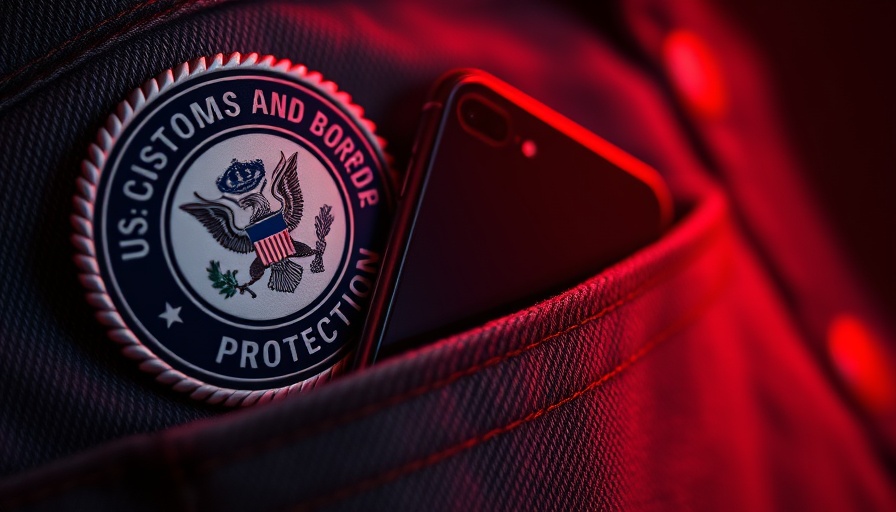
Understanding Your Rights at the Border
As international travel resumes and the complexities of crossing the U.S. border intensify, travelers must be aware of their digital privacy rights. Customs and Border Protection (CBP) possesses significant authority to search devices, which can include smartphones and laptops. It is crucial for travelers to know that while CBP can indeed access a traveler’s device, U.S. citizens and green card holders have the right to refuse a search. Yet, this refusal may lead to extended questioning or holding of the device.
Precautions to Protect Your Digital Data
Travelers are encouraged to implement strategic measures to safeguard their digital information before embarking on their journey. A practical step is to minimize the data stored on devices. This could involve using cloud services for non-essential files or transferring sensitive information to a less frequently used device that will not be taken across the border. Additionally, utilizing password-protected folders and enabling full-disk encryption can bolster protection against unauthorized access.
Alternatives: Using Temporary Devices
With concerns about device searches on the rise, many travelers are considering alternative methods to protect their digital lives. Some may opt for burner phones—temporary phones with only essential apps installed, which can be discarded after the trip, or travel-friendly devices that lack significant personal information. Corporate executives and business travelers are particularly prone to using these strategies, ensuring that proprietary information remains confidential even under scrutiny.
Awareness and Adaptation to Current Policies
The ever-evolving policies under the current administration necessitate that travelers stay informed about their rights and the implications of border searches. Travelers should keep abreast of updates from both the CBP and their home country’s travel advisories, as regulations can shift rapidly based on political climates. Personalized risk assessment can guide decisions about what devices to carry and how to prepare them.
Final Thoughts on Cybersecurity and Travel
As travelers prepare to cross borders, understanding the intersection of privacy and cybersecurity will help protect their personal information. The reality of dynamic border policies makes it essential for individuals to not only be aware of the risks involved but to actively engage in protective measures. By taking the time to prepare and adapt to new regulations, individuals can maintain a semblance of privacy amidst scrutiny.
In this era where personal data is increasingly vulnerable to searches, staying informed and taking actionable steps is paramount for protecting one's digital life while traveling.
 Add Row
Add Row  Add
Add 




Write A Comment